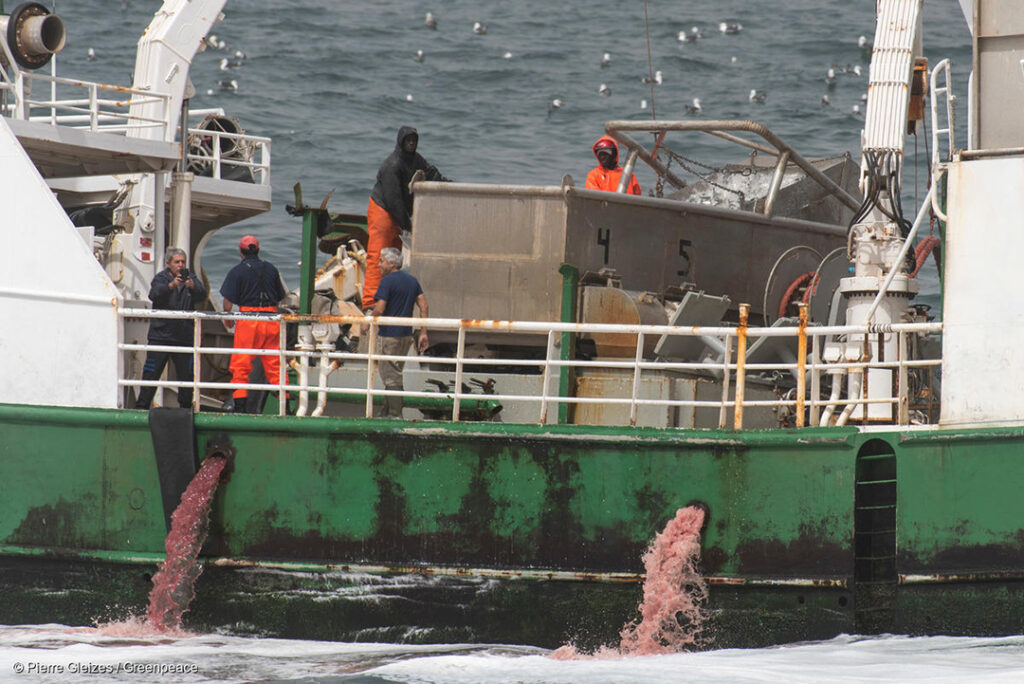ADF STAFF
An influx of foreign industrial trawlers in Cameroonian waters has led to an increase in illegal fishing and highlighted the nation’s maritime and national security issues, according to a new study.
An estimated 70 industrial fishing vessels operate in Cameroon, but most of them are Chinese or Nigerian, according to research by Maurice Beseng of the United Kingdom’s University of Sheffield. Beseng studies fisheries crimes in the Gulf of Guinea region.
As in other areas in the region, the vessels are known to fish in areas designated for artisanal fishing, use prohibited chemicals, fail to declare catch data, submit fraudulent documents to fish and bribe local officials.
Beseng’s study was released months after the European Commission (EU) issued Cameroon a “yellow card” after determining that the country’s level of development and engagement against illegal, unregulated and unreported (IUU) fishing was inadequate.
A yellow card is a formal warning that could lead to a total ban on seafood exports from the country to the EU.
Such practices lead to rampant overfishing and destruction of ecosystems while hindering Cameroon’s efforts to stimulate its “blue economy.” The increase of industrial trawlers in Cameroon also threatens the livelihoods of more than 200,000 people who work in the fisheries sector.
More than 80% of artisanal fishermen in Cameroonian waters are from Benin, Ghana, Nigeria and Togo, according to Beseng. Confrontations over fishing boundaries have occurred between Cameroon and authorities in neighboring Nigeria and Equatorial Guinea.
“Efforts to combat fishing and fisheries crime must recognize the relationship between the sector and maritime security,” Beseng wrote in The Conversation Africa. “And there must be efforts to ensure cooperation with locals as well as non-state actors. These include fisheries-based community groups and civil society organizations.”
In 2017, Cameroon’s government tallied the overall cost of illegal fishing at $33 million a year.
In issuing the yellow card, the EU noted Cameroon’s weak registration policy for trawlers to fish under its flag and a lack of adequate oversight of those vessels.
The Environmental Justice Foundation told SeafoodSource that Cameroon is known for offering a “flag of convenience” to foreign trawlers. The practice allows a trawler’s owners to dodge financial charges and other regulations.
With IUU fishing rampant in the region, West African countries also have confronted linked threats, including piracy and trafficking of weapons, drugs and people.
In the first quarter of 2021, the Gulf of Guinea accounted for 43% of all piracy incidents in the African region, according to the International Maritime Bureau. In 2020, the Gulf of Guinea accounted for more than 95% of all maritime kidnappings globally, according to the bureau.
In Cameroon, Beseng’s research found that artisanal and industrial vessels have been intercepted and used for smuggling fuel, weapons and illegal migrants. Many of the weapons smuggled into Cameroon come from Nigeria.
“The transnational nature of fisheries crime practices requires inter-agency cooperation both within Cameroon and other countries,” Beseng wrote. “Understanding the social networks and economic partnerships of the various agencies will help focus resources to tackle actors and their illegal proceeds.”


1 Comment
Smuggling is the virus that has eating the fabrics if Africa’s development in the midst of high organized corruption by state actors .The seas of Africa are vulnerable to whatsoever including human Rights abuses such as unthinkable kidnapping of human beings.What a clueless continent and people far from what we believe should be attributes of man.No God in their minds if ever they believe there is one.when shall such paining and ugly incidents decline or be abolished for the wellbeing of Africa’s sons and daughters?
I believe there is a syndicate across the world, with operatives globally, because all that happens in Africa is not all ending in the continent .